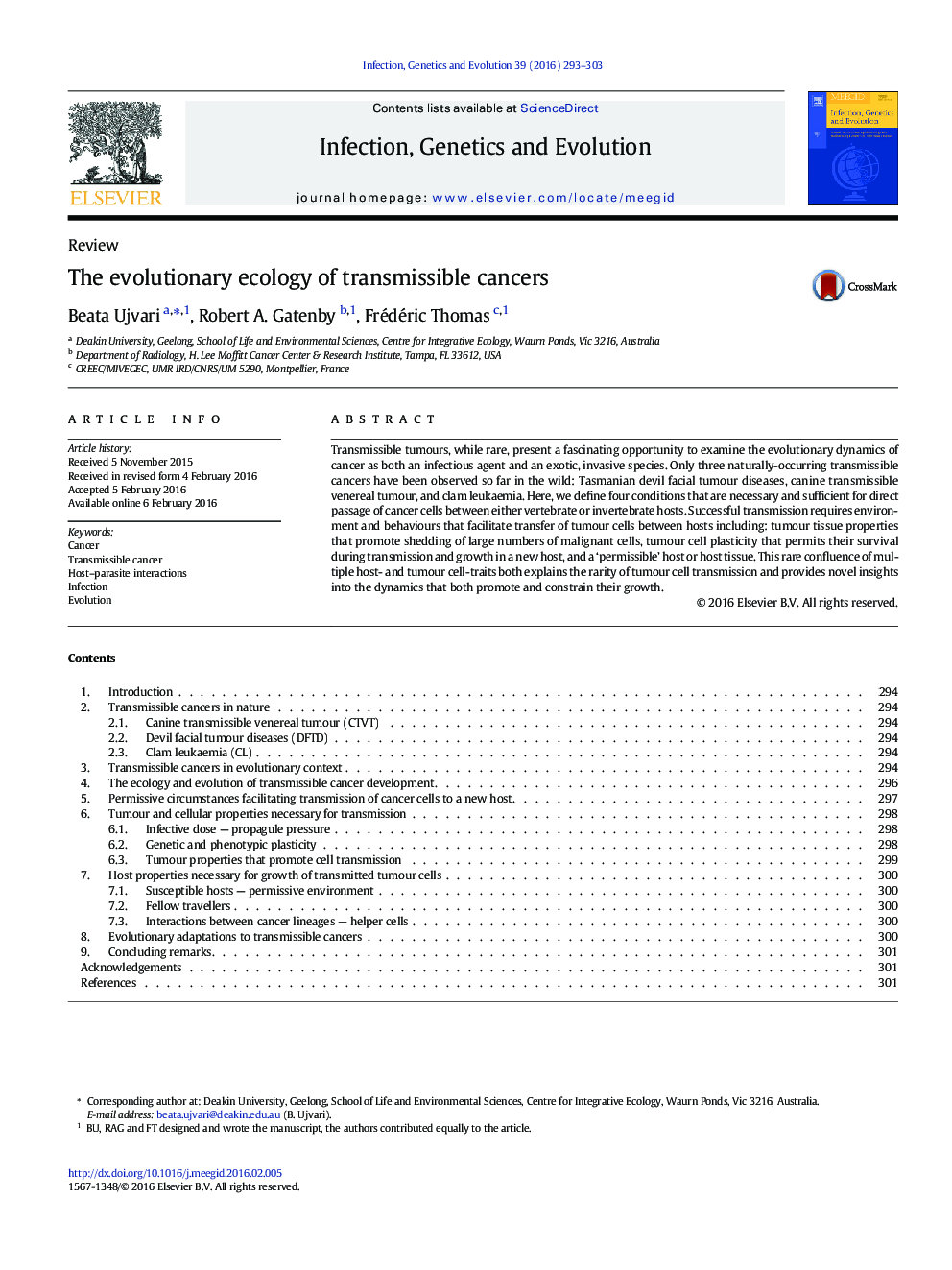| Article ID | Journal | Published Year | Pages | File Type |
|---|---|---|---|---|
| 5908696 | Infection, Genetics and Evolution | 2016 | 11 Pages |
â¢Oncogenesis is an evolutionary process in which cancer cells proliferate autonomously and undergo clonal expansion.â¢By infecting and colonizing other hosts cancer cells are able to occupy an empty niche and persist in a population.â¢Cancer transmission requires: 1. shedding of tumour cells, 2. survival in transit and 3. and adapting to a foreign host.â¢Successful transmission of cancer requires a “perfect storm” with the confluence of multiple host and tumour cell traits.
Transmissible tumours, while rare, present a fascinating opportunity to examine the evolutionary dynamics of cancer as both an infectious agent and an exotic, invasive species. Only three naturally-occurring transmissible cancers have been observed so far in the wild: Tasmanian devil facial tumour diseases, canine transmissible venereal tumour, and clam leukaemia. Here, we define four conditions that are necessary and sufficient for direct passage of cancer cells between either vertebrate or invertebrate hosts. Successful transmission requires environment and behaviours that facilitate transfer of tumour cells between hosts including: tumour tissue properties that promote shedding of large numbers of malignant cells, tumour cell plasticity that permits their survival during transmission and growth in a new host, and a 'permissible' host or host tissue. This rare confluence of multiple host- and tumour cell-traits both explains the rarity of tumour cell transmission and provides novel insights into the dynamics that both promote and constrain their growth.
